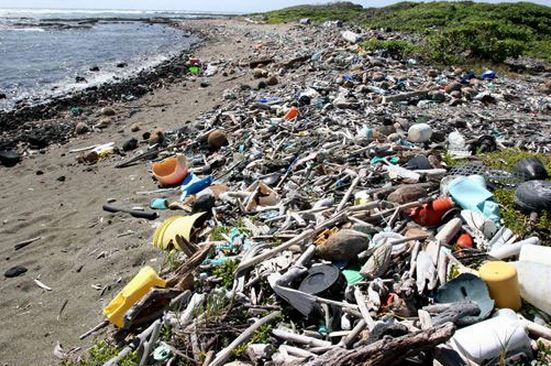We dumped about 8 million tons of plastic debris into the world’s oceans in 2010, this figure will increased more than tenfold within the next ten years if urgent measures to improve waste management practices are not taken, say researchers.
Assistant Professor Jenna Jambeck from the College of Engineering at the University of Georgia in Athens, GA, along with colleagues from Australia and the United States, studied the sources of plastic debris that ended up in the oceans globally and developed models to estimate what their annual contributions were.
The researchers suggested that in 2010, coastal nations generated nearly 275 million tons of plastic waste, with 4.8 to 12.7 million tons of that total ending up in the oceans.

The amount of plastic debris being dumped into the sea is growing at an alarming rate.
Not only is this the first comprehensive study to look at how much plastic debris makes its way from land to sea annually, say the scientists, but it also identified the major sources of ocean-bound plastic. The team listed the 20 countries that contributed the most.
Their findings have been published in the journal Science (citation below).
“Our estimate of 8 million metric tons going into the oceans in 2010 is equivalent to five grocery bags filled with plastic for every foot of coastline in the world. This annual input increases each year, so our estimate for 2015 is about 9.1 million metric tons.”
“In 2025, the annual input would be about twice the 2010 input, or 10 bags full of plastic per foot of coastline. So the cumulative input by 2025 would equal 155 million metric tons.”
In this study, the team combined solid waste data from 192 different coastal countries with factors such as economic status and population density.
Mismanaged waste to blame
They found that trash that is littered or lost from waste management systems, what they call uncaptured waste, represented the bulk of ocean-bound plastic debris worldwide.
Prof. Jambeck said:
“Our mismanaged waste is a function of both inadequate management–open dumping, for example–and litter. This mismanaged waste goes uncaptured, meaning that it then becomes available to enter marine environments.”
Their models found that a nation’s population size plus the quality of its waste management systems determined how much mismanaged waste it generated.
In order to halt the explosion of plastic debris ending up in the oceans, Jambeck and colleagues say countries globally need to reduce their overall waste and implement better management strategies.
Jambeck said:
“We need to make sure that we are collecting and capturing solid waste and plastic around the world. Second to this is what we do with it… If we at least capture it, it’s not going to go into the oceans.”
“Solutions will require a combination of local and global efforts. They need to be culturally appropriate and sensitive to social and economic concerns. But a shift in how we manage waste could provide jobs and opportunities for economic innovation–and it could improve the living conditions and health of millions of people.”
We are plundering the oceans with shrimp farms, satellite-guided giant-scale sea-fishing and seafloor mining to such an extent that now much of marine wildlife is under threat of extinction, scientists from US Santa Barbara warned in January.
Citation: “Plastic waste inputs from land into the ocean,” Jenna R. Jambeck, Roland Geyer, Chris Wilcox, Theodore R. Siegler, Miriam Perryman, Anthony Andrady, Ramani Narayan, and Kara Lavender Law. Science 13 February 2015: 347 (6223), 768-771. [DOI:10.1126/science.1260352]
